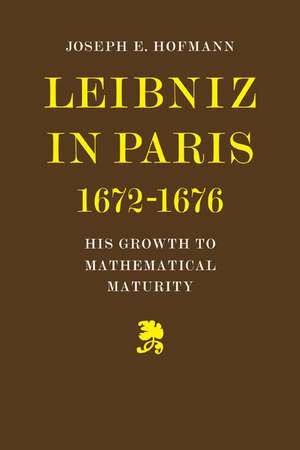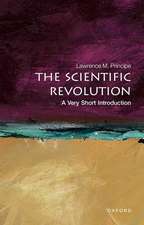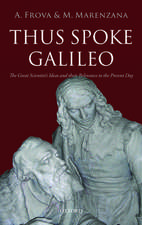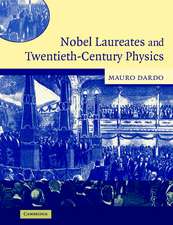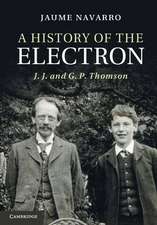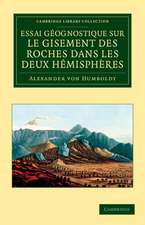Leibniz in Paris 1672-1676: His Growth to Mathematical Maturity
Autor Joseph H. Hofmannen Limba Engleză Paperback – 17 sep 2008
Preț: 399.50 lei
Nou
Puncte Express: 599
Preț estimativ în valută:
76.45€ • 79.72$ • 63.54£
76.45€ • 79.72$ • 63.54£
Carte tipărită la comandă
Livrare economică 21 martie-04 aprilie
Preluare comenzi: 021 569.72.76
Specificații
ISBN-13: 9780521081276
ISBN-10: 0521081270
Pagini: 392
Dimensiuni: 152 x 229 x 22 mm
Greutate: 0.57 kg
Editura: Cambridge University Press
Colecția Cambridge University Press
Locul publicării:Cambridge, United Kingdom
ISBN-10: 0521081270
Pagini: 392
Dimensiuni: 152 x 229 x 22 mm
Greutate: 0.57 kg
Editura: Cambridge University Press
Colecția Cambridge University Press
Locul publicării:Cambridge, United Kingdom
Cuprins
1. Introduction; 2. The 'Accessio ad Arithmeticam Infinitorum'; 3. The first visit to London; 4. Oldenburg's communication of 6 (16) April 1673; 5. The great discoveries of the year 1673; 6. Readings in contemporary mathematical literature; 7. First communication about the new results; 8. The quarrel over rectification; 9. Disputes about clocks; 10. Leibniz receives first details of Gregory's and Newton's work; 11. Studies in algebra; 12. The meeting with Tschirnhaus; 13. The invention of the calculus; 14. Dispute about Descartes' method; 15. The report on Gregory's results and Pell's methods; 16. Newton's first letter for Leibniz; 17. Leibniz' reply; 18. Tschirnhaus' reaction; 19. Newton's second letter for Leibniz; 20. The second visit to London; 21. Conclusion.
Descriere
Gottfried Wilhelm Leibniz grew to be one of the outstanding mathematicians of his age and to found the modern differential calculus.
